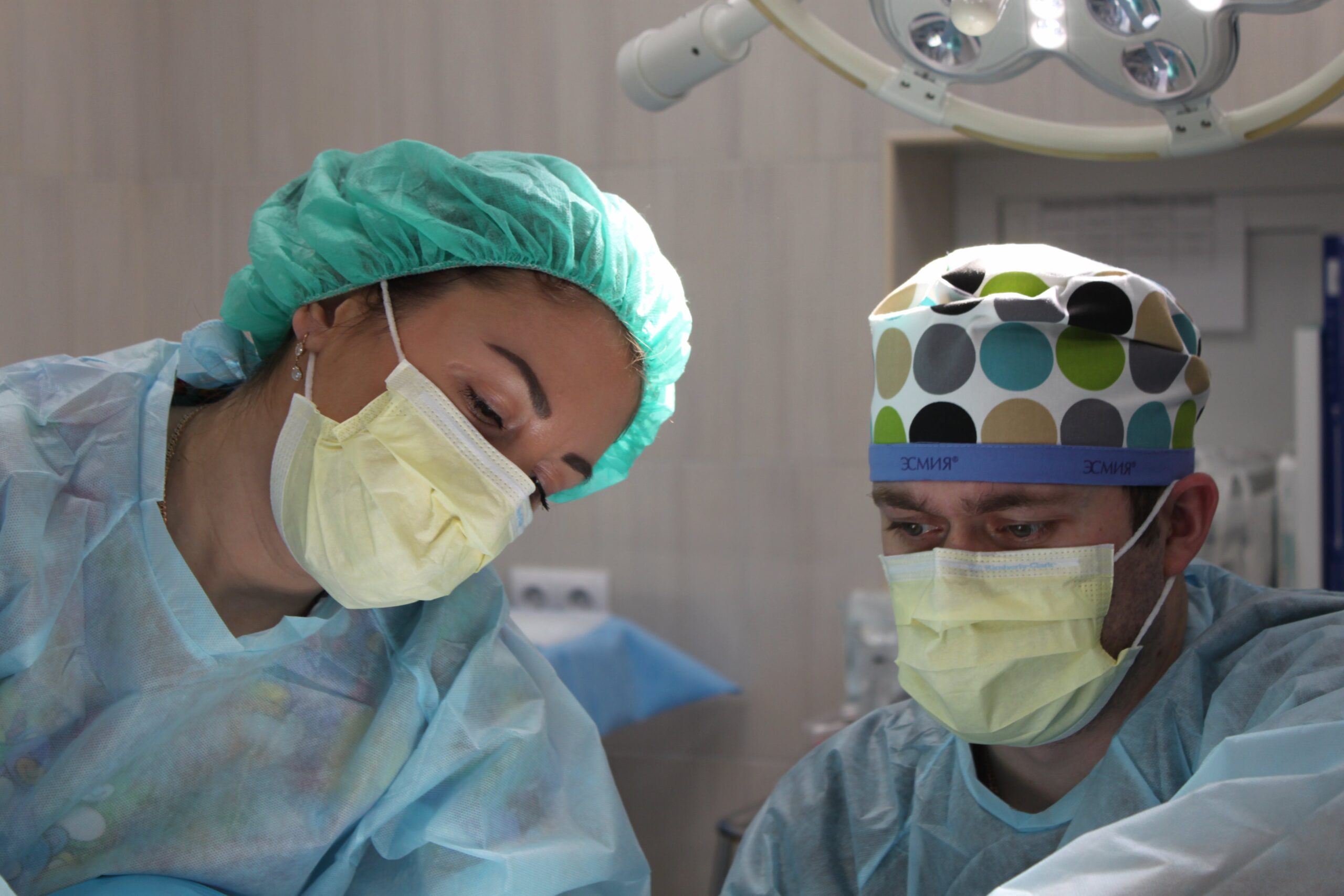Physical trauma, often caused by accidents or violence, can lead to life-threatening injuries. These critical moments demand the expertise of trauma surgeons, professionals dedicated to saving lives in emergency situations. In this comprehensive guide, we delve into all the details of trauma surgery, from the educational path to the responsibilities and rewards of this rewarding medical profession.
Who Are Trauma Surgeons?
Trauma surgeons are medical professionals with specific training in carrying out emergency procedures on seriously injured or critically ill patients. They are often referred to as critical care surgeons and acute care surgeons. They are at the forefront of emergency departments in hospitals and academic medical centres, working alongside a team of healthcare experts to swiftly diagnose, operate, and, if necessary, oversee the patient’s recovery.
What Does a Trauma Surgeon Do?
A trauma surgeon’s role is a demanding and pivotal one within the realm of medical care. In this profession, you will regularly encounter patients who have sustained severe injuries or are critically ill, typically in the high-stress context of emergency medicine. Your responsibilities will encompass a wide spectrum of critical tasks, ranging from orchestrating a diverse team of healthcare experts to rapidly and accurately assessing patients for diagnoses and formulating comprehensive treatment strategies.
As a trauma surgeon, your expertise extends to the entire human body, making you proficient in performing surgical interventions across various systems and anatomical regions, as opposed to specialising in a single specific area. This multifaceted role requires unwavering dedication, precision, and the ability to think on your feet in high-pressure situations to save lives and alleviate suffering.
How to Become a Trauma Surgeon? – Step-by-Step Guide to Become a Trauma Surgeon
The journey to becoming a trauma surgeon is rigorous and rewarding. Here’s what you need to know:
Undergraduate Degree
The first step is completing a 4-year undergraduate pre-med program. Aspiring trauma surgeons often obtain a Bachelor of Science degree while taking courses in biology, organic chemistry, and physics. During this period, gaining clinical experience through volunteer work and internships is crucial to increase your chances of getting into medical school.
Medical School
Medical school typically spans four years, combining basic and clinical science, communication skills, and ethical practices. To enter medical school, you need to take and attend the Medical College Admission Test (MCAT). The competition for medical school is intense, so excelling in your coursework and gaining experience is paramount.
Residency
After graduating from medical school, a surgical residency lasting about five years is required. You will gain a firm understanding of surgical procedures and perform clinical rotations in a variety of specialties throughout this period. Some of the topics covered include laparoscopy, bone fixation, suturing, and surgical biopsy. As a prelude to specialising in trauma surgery, you can apply for a trauma surgery fellowship.
Fellowship
Trauma surgery fellowships typically last 1-2 years. Here, you’ll work in Level I or Level II trauma centres, gaining expertise in treating various traumatic injuries, burns, and brain injuries. The fellowship also covers neurosurgical and cardiothoracic surgery, as well as teaching and administrative skills.
Licensing
To practise medicine legally in the United States, medical professionals, including surgeons, must go through a series of important steps, one of which is passing the United States Medical Licensing Examination (USMLE). This examination assesses a physician’s ability to apply their medical knowledge and skills in a clinical setting. It consists of multiple parts, including Step 1, Step 2 CK (Clinical Knowledge), Step 2 CS (Clinical Skills), and Step 3.
In addition to passing the USMLE, physicians must obtain a state medical licence to practise in the state where they plan to work. State medical licensing boards have their own requirements and processes, but they typically include passing the USMLE, completing a residency program, and meeting other state-specific requirements.
Job Outlook and Compensation
According to the U.S. Bureau of Labor Statistics, surgeons, including trauma surgeons, had a median salary of $297,800. Surgeon employment is predicted to expand by 3% between 2021 and 2031, which is slightly less than the average for all occupations. There may be additional options for surgeons who are willing to work in underserved or rural locations.
Certification and Continued Learning
Certification for trauma surgeons is available through organisations like the American Board of Surgery and the American Board of Medical Specialties. These certifications require meeting specific criteria and passing exams, ensuring the highest standards of care for patients.
How Should I Prepare for Medical School?
Preparing for medical school is a rigorous process that requires dedication and careful planning. Here’s a comprehensive guide on how to prepare for medical school:
- Get a Bachelor’s Degree: A requirement for medical school admission is having a bachelor’s degree. While medical schools accept students from various undergraduate majors, it’s common for aspiring medical students to major in biology, chemistry, or other science-related fields. Your major selection should reflect your interests and strengths.
- Maintain a High GPA: Medical school admissions are highly competitive. To stand out, it’s essential to maintain a high cumulative grade point average (GPA) during your undergraduate years. Aim for excellence in your coursework, especially in the sciences subjects.
- Take Required Pre-Med Courses: Prerequisites for most medical schools often include biology, chemistry (including inorganic and organic), physics, and arithmetic classes. It’s important to meet these requirements by taking the necessary courses.
- Participate in Extracurricular Activities: Medical admissions committees value a well-rounded applicant. Take part in extracurricular activities like community service, medical research, or volunteering in healthcare facilities. Your dedication to the subject and your capacity for working with a variety of people are demonstrated by these experiences.
- Prepare for the MCAT: The MCAT is a standardised test that evaluates your ability to solve problems, use critical thinking, and comprehend ideas and concepts from the natural, behavioural, and social sciences. A competitive MCAT score is crucial for admission. Dedicate ample time to prepare for this exam through study guides, practice tests, and possibly a preparation course.
- Gain Clinical Experience: To understand the realities of healthcare and confirm your commitment to medicine, seek clinical experience. Observing doctors, working as a medical scribe, or volunteering in a clinic or hospital can all offer insightful information.
- Secure Strong Letters of Recommendation: Safe and effective letters of recommendation Establish connections with academics, role models, and medical professionals who can provide strong letters of recommendation for you. These letters ought to vouch for your moral character, diligence, and fitness for medical school.
- Write a Convincing Personal Statement: Create a captivating personal statement that explains why you want to become a doctor and emphasises your special skills and experiences.
- Apply to Medical Schools: Carefully research medical schools to determine which ones align with your goals and values. Each school has specific admission requirements and preferences. Submit your applications through the American Medical College Application Service (AMCAS) or the American Association of Colleges of Osteopathic Medicine Application Service (AACOMAS).
- Prepare for Interviews: If you are invited to an interview, be prepared to talk about your background, experiences, and motivations. For a confident and articulate interview performance, practise your interviewing techniques.
Where Do Most Trauma Surgeons Work?
Trauma surgeons typically work in a variety of healthcare settings, primarily in places where they can provide immediate and specialised care to patients who have sustained severe injuries or are critically ill. Trauma surgeons often work in Level I or Level II trauma centres, which are specialised hospitals equipped to handle the most severe and complex cases of trauma. These centres have the necessary resources, including a dedicated trauma team and state-of-the-art facilities, to provide comprehensive care to critically injured patients.
What’s the Job Growth As a Trauma Surgeon?
The job growth rate for all physicians and surgeons from 2020 to 2030 is projected to be approximately 3%. This modest growth indicates the continued need for medical care across a variety of disciplines, which is driven by reasons including an ageing population, improvements in medical treatments, and the ongoing need for healthcare services. Even though, the healthcare sector tends to remain relatively stable even in fluctuating economic conditions, contributing to the consistent demand for physicians and surgeons.
What is the Highest Salary for a Trauma Surgeon?
The trauma surgeon’s income might vary depending on the area, level of education, and level of experience but their salaries typically range between $204,000 and $806,000 per year. However, it’s important to note that these figures can fluctuate and may change over time.
What Type of Surgeon Makes the Most Money?
In terms of the type of surgeon who makes the most money, surgical and procedural specialties tend to have some of the highest earning potential. The highest-paid doctors in the country are neurosurgeons, thoracic surgeons, and orthopaedic surgeons, with average yearly earnings frequently exceeding $600,000.
What Type of Surgeon is the Hardest to Become?
It’s a subjective matter, and difficulty can vary from person to person. However, certain surgical specialties are known for their high level of competitiveness and demanding training programs and typically involve extensive and rigorous residency training, highly competitive application processes, and demanding surgical procedures. Some of the specialties often considered challenging to pursue include:
- Neurosurgery
- Orthopaedic Surgery
- Ophthalmology
- Otolaryngology (Ear, Nose, and Throat)
- Plastic Surgery
- Urology
- Radiation Oncology
- Interventional Radiology
Conclusion
A career as a trauma surgeon is both demanding and gratifying. These dedicated professionals play a vital role in saving lives when every second counts. If you’re passionate about emergency medicine and the prospect of making a profound impact on patients’ lives, this might be the path for you. St. Kitts Medical School can assist you in your journey to become a trauma surgeon by providing a comprehensive medical education, facilitating clinical experience, offering faculty support and mentorship, aiding in board preparation, and guiding you in securing relevant residency programs and trauma surgery fellowships.
With access to resources, networking opportunities, and continuous learning, the school equips you with the essential skills and knowledge required for this challenging yet rewarding medical specialty. You can get in touch with WUSOM’s experts for advice and career counselling:
- Tel: 1-869-466-1220 / 1-869-466-6157 / 1-708-235-1940
- Fax: 1-869-465-0593
- Email: admin@windsor.edu







